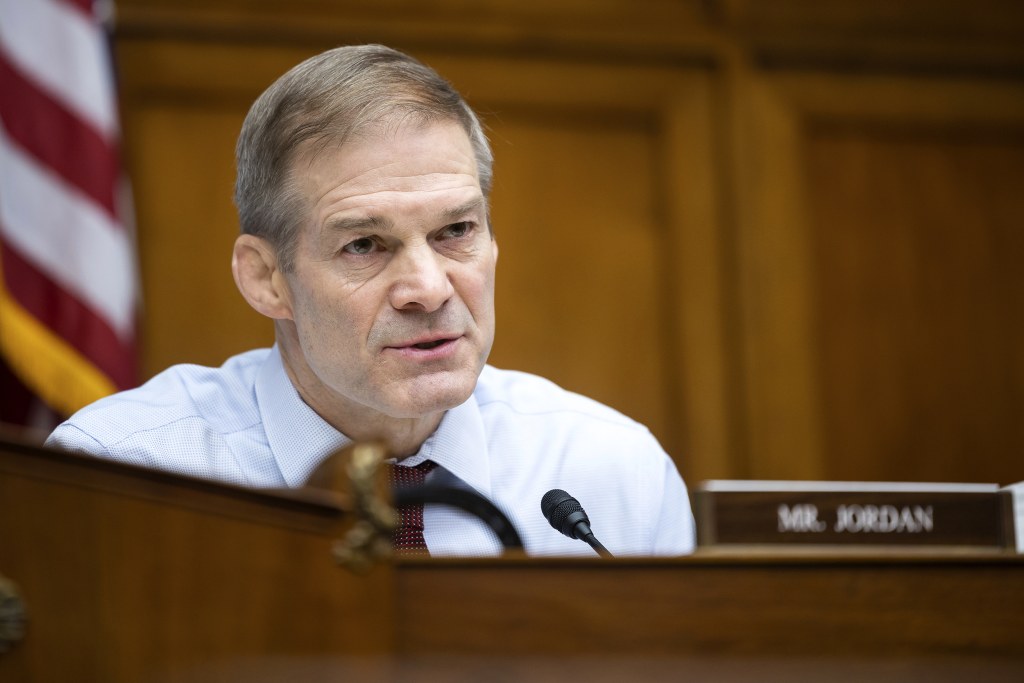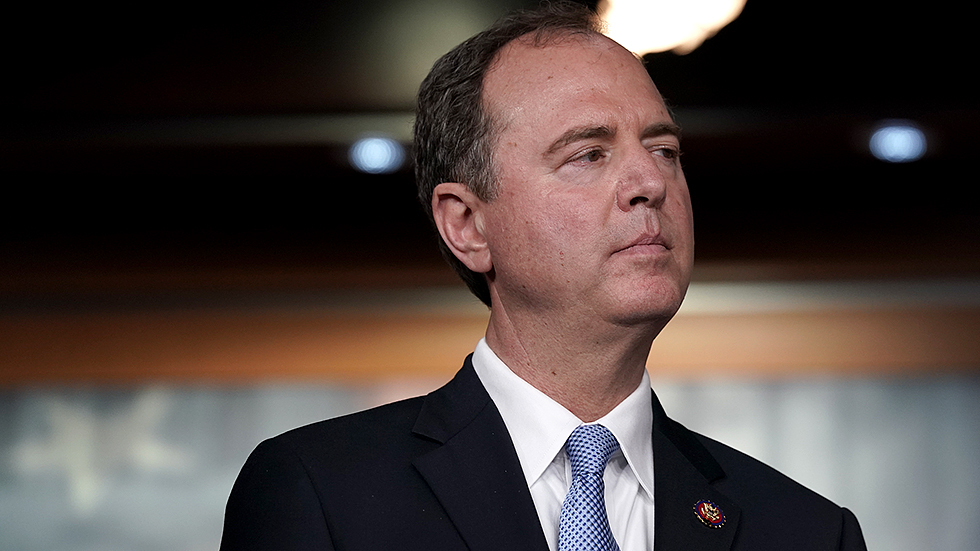Jim Jordan Accuses Adam Schiff of Leaking Classified Information to Undermine Trump at Patel Hearing
In a heated and dramatic House Judiciary Committee hearing, Republican Congressman Jim Jordan made explosive allegations against former House Intelligence Committee Chairman Adam Schiff, claiming that Schiff leaked classified information to harm former President Donald Trump. This revelation came during a session focused on oversight of the Federal Bureau of Investigation (FBI) and highlighted the ongoing political tensions surrounding the agency and its leadership.

A Somber Opening
The hearing began with a moment of reflection as Chairman Jim Jordan acknowledged the tragic death of conservative activist Charlie Kirk, who was recently assassinated. Jordan praised Kirk for his commitment to defending the First Amendment and his fight for American values. He invoked the scripture from 2 Timothy 4:7, emphasizing Kirk’s dedication to “fight the good fight, finish the course, keep the faith.”
Jordan’s somber remarks set the tone for the hearing, which quickly shifted to the serious allegations against Schiff. Ranking member of the committee also expressed horror at Kirk’s assassination, highlighting the need for unity against political violence in America. The committee’s shared grief underscored the gravity of the discussions that would follow.
Whistleblower Testimonies
As the hearing progressed, Jim Jordan introduced a whistleblower with 23 years of experience in the intelligence community. This whistleblower, a Democrat staffer, alleged that Schiff pressured them to leak classified information. Jordan raised critical questions about why the head of the intelligence committee would encourage the leaking of such sensitive material.
According to the whistleblower, the leaked information was intended to be used to indict President Trump. This revelation prompted Jordan to draw parallels between Schiff’s actions and those of former FBI Director James Comey, who had also been accused of leaking classified information. Jordan cited an inspector general’s report that claimed Comey violated FBI policy by disclosing classified information, suggesting that both Schiff and Comey were motivated by a desire to undermine Trump’s presidency.
The Role of the Steele Dossier
Jordan’s accusations did not stop there. He delved into the origins of the intelligence community’s assessment regarding Russian interference in the 2016 election, claiming that it was manipulated to fit a particular narrative. He pointed to a meeting at the White House on December 9, 2016, where officials decided to change the assessment from stating that Russia did not impact the election vote count to claiming that Russia was attempting to influence the election.
He presented emails from Admiral Mike Rogers, then head of the NSA, expressing concerns about the intelligence assessment. In response, Jordan highlighted an email from James Clapper, then Director of National Intelligence, urging his colleagues to “be on the same page” and emphasizing the need to support the report, even if it meant compromising their normal procedures.
Jordan asserted that the discredited Steele dossier, funded by the Clinton campaign, played a significant role in shaping the intelligence community’s narrative about Russian interference. He accused Schiff and others of using this dubious information to further their political agenda, thereby undermining the legitimacy of Trump’s presidency.

The January 6 Briefing
The hearing took a dramatic turn as Jordan recounted the events of January 6, 2017, when Comey and other intelligence officials briefed then-President-elect Trump about the discredited dossier. Jordan argued that this briefing was intended to give credibility to the false information and set the stage for further investigations into Trump’s ties to Russia.
He accused Comey of immediately leaking details of the briefing to the press, further perpetuating the narrative that Trump was compromised. According to Jordan, this was part of a broader scheme involving high-ranking officials within the FBI and intelligence community to sabotage Trump’s first term.
Patel’s Leadership
Amidst the accusations, Jordan praised the current FBI Director, Kash Patel, for his leadership and efforts to restore integrity to the bureau. He highlighted Patel’s achievements, including the removal of 21,000 violent criminals from the streets and the rescue of 4,000 children from predatory situations. Jordan claimed that Patel’s focus on law enforcement rather than political maneuvering marked a significant shift in the FBI’s priorities.
Jordan emphasized that under Patel’s leadership, the FBI had ceased its surveillance of concerned parents at school board meetings and ended the pre-dawn raids on pro-life activists. He argued that Patel was committed to transparency and accountability, contrasting his approach with that of former Director Christopher Wray.
Accountability and Transparency
Jordan’s remarks underscored the importance of accountability within the FBI and the need for transparency in government operations. He pointed out that Patel had provided information that Wray had previously withheld from Congress, including details about confidential human sources present at the Capitol on January 6, 2021. Jordan accused Wray of failing to disclose that some of these sources had entered restricted areas without facing any consequences.
The congressman also referenced the Richmond field office memorandum, which targeted pro-life Catholics, asserting that Patel had revealed the extent of the FBI’s surveillance activities. Jordan claimed that this demonstrated a pattern of political bias within the agency, raising concerns about the FBI’s commitment to impartiality.

Saving Taxpayer Money
In addition to his critiques of the FBI’s past actions, Jordan praised Patel for saving taxpayer money by opting to keep the FBI’s headquarters in Washington, D.C., rather than pursuing a costly relocation. He argued that Patel’s decisions reflected a commitment to fiscal responsibility and effective governance.
Jordan concluded his opening statement by expressing his belief that the Democrats would continue to focus on undermining Trump rather than acknowledging the positive changes Patel had implemented within the FBI. He urged his colleagues to prioritize accountability and transparency over political agendas.
Conclusion: A Divided Congress
As the hearing progressed, it became evident that the political divide within Congress remains deeply entrenched. Jordan’s allegations against Schiff and the broader implications for the FBI’s integrity sparked intense debate among lawmakers. The session highlighted the ongoing struggle between accountability and political maneuvering, as both parties sought to shape the narrative surrounding the FBI and its role in American democracy.
With the hearing drawing national attention, it is clear that the fallout from these allegations will continue to reverberate throughout Washington. As the investigation into the alleged leaks and misconduct unfolds, the American public remains watchful, eager for transparency and accountability in their government. The stakes are high, and the implications of these revelations could have lasting effects on the political landscape in the years to come.